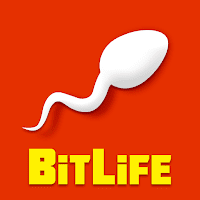


【How to play】
In BitLife - Life Simulator, the gameplay is characterized by its rich tapestry of choices and paths, all of which have the power to dramatically alter the trajectory of your virtual life. From the very beginning, you are given the freedom to carve out your character's unique journey, choosing paths that align with your aspirations or whims. Your operation on this game will be making choices.
Whether you opt for a rigorous academic pursuit, a fast-paced career climb, or a focus on building strong relationships, your choices will define the course of your character's life. These choices are not just about selecting the next step; they are about molding your character's identity and shaping their experiences.
Every decision you make, whether it's about education, work, or personal matters, opens up a new avenue of possibilities.
As you navigate your character through the ups and downs of life, you'll encounter various crossroads. These pivotal moments will challenge your decision-making skills and introduce a dynamic element to the gameplay. Will you choose love or money? Honesty or deceit? Each choice has consequences that ripple throughout your character's life story.
【Pros and cons】
pros
1. BitLife excels in offering an extensive array of life choices and decisions. Players can make critical decisions at various life stages, influencing their character's education, career, relationships, and more.
2. BitLife allows players to continue their virtual family legacy by controlling subsequent generations. This feature adds complexity and continuity to the gameplay.
3. The game includes a wide range of realistic life events and scenarios, such as illnesses, accidents, and legal issues, adding depth and unpredictability to the gameplay.
cons
1. The adoption aspect of the game could be enhanced. Players wish for more options related to adoption, including starting life as an orphan and having the opportunity to communicate with other orphans and attend adoption interviews.
2. There are inconsistencies in family relationships, such as triplets being referred to as twins, and the gender distribution of multiples not always reflecting real-life possibilities.
























